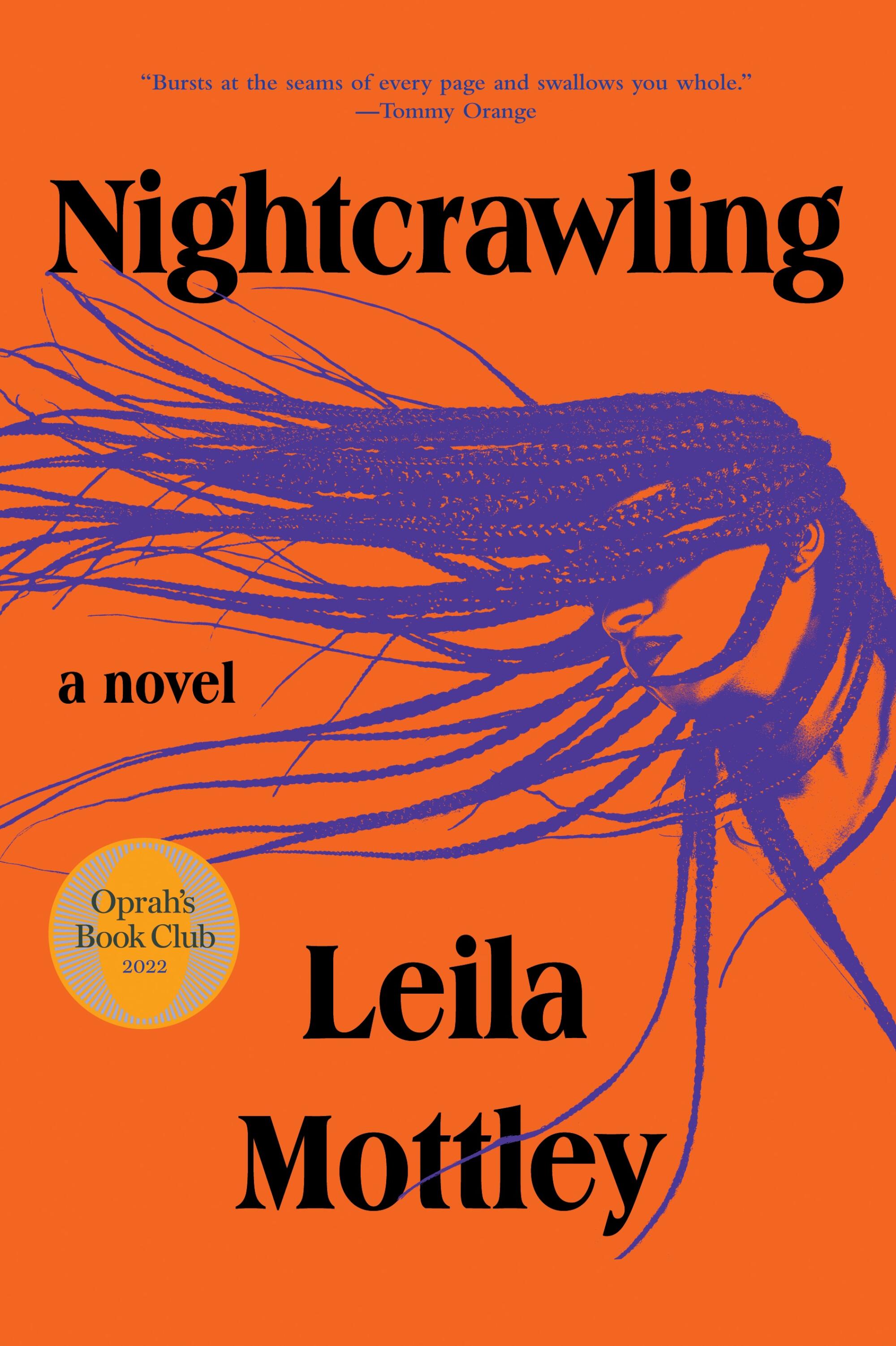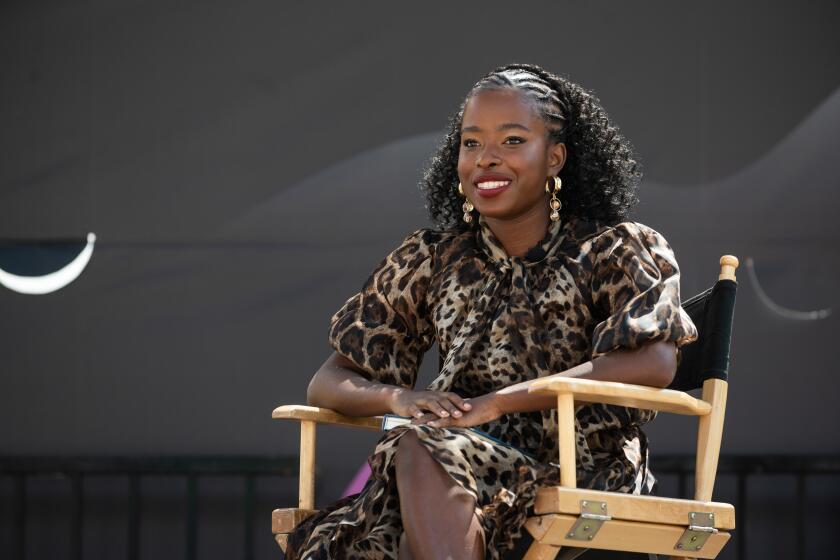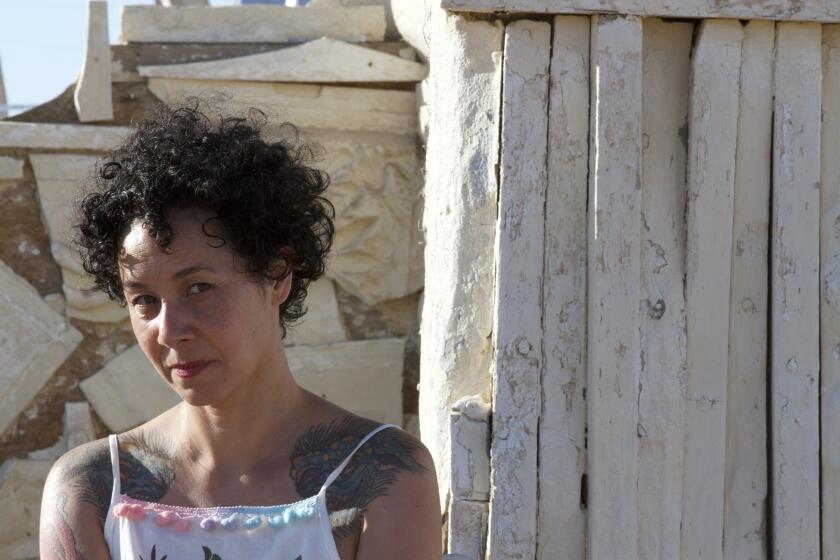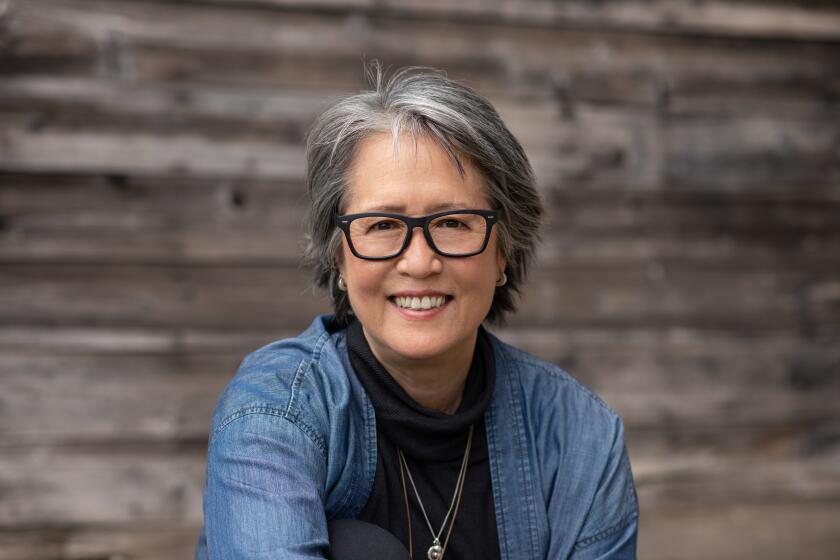- Share via

Some people are shocked when they learn that Leila Mottley is still a teenager. Their shock comes as no surprise to her: “I expect it at this point.”
Mottley was 16 when she served as Oakland’s youth poet laureate and wrote the first chapter of her debut novel. Within three months, she had a first draft. Three years later, “Nightcrawling” is out this week from Knopf.
As a graduate of an arts high school in Oakland, Mottley knew other talented teenagers; she never thought of herself as an exception.
“A lot of people don’t have very high expectations of young people,” Mottley said during a recent interview. But everyone starts out young. “I don’t think we suddenly become capable of things because of our age.”
Just shy of her 20th birthday, Mottley makes superstar Amanda Gorman look like a veteran at 24. She has certainly accomplished more in her career than most people would dream of in a lifetime: One poetry collection already published and another forthcoming; an anthology she edited of young queer writing; a second novel under way; and, of course, “Nightcrawling.” Following raves from advance review outlets and glowing blurbs from Kiese Laymon, Ayana Mathis, James McBride and others, on Tuesday the novel was announced as an Oprah Book Club pick.
With elements of social realism and coming of age, the novel lives and breathes Oakland. So does the author, who still sticks close to home.
Gorman was a headliner Saturday at the two-day Festival of Books, where the Los Angeles poet shared a new piece.
On a sunny May afternoon, Mottley and I sit at a picnic table in Oakland’s Dimond Park, just blocks from where she grew up and now lives with her partner, Mo Enriquez. She sports a blue dress, bouncy curls cascading to her shoulders and a tattoo of a lavender sprig on her left forearm. She got it to commemorate “Nightcrawling,” which is rife with references to the fragrant herb.
The park reminds Mottley of childhood days swimming in its creek with her mother and older brother. She still comes here most weeks, lays out a blanket to write, read or people-watch. Sometimes she swims.
“Nightcrawling” is no veiled autobiography. Mottley, whose upbringing was stable and loving, shares little history with her novel’s 17-year-old protagonist, Kiara, whose family has been torn apart by death and prison. While her brother Marcus chases his dreams of becoming a rapper, Kiara resorts to sex work to maintain a roof over their heads and keep Trevor, a 10-year-old neighbor who was abandoned by his mother, protected and fed.
Kiara ends up sexually exploited by officers from the Oakland Police Department before becoming a key witness in a suicide investigation. If the novel sounds grim, so is the real-life scandal that inspired it. In 2016, following an officer’s suicide, a young woman alleged that at least 14 Oakland police officers had sexually abused her.

Mottley followed the story obsessively over the next few years, wondering why police brutality protests — like the ones sparked by the killings of Michael Brown, George Floyd and dozens of other Black men — rarely addressed sexual violence against women by police.
“Since the beginning of time, sexual violence has been used as a tactic to control and assert power and domination, and it’s also a way in which police do that, and I wanted to create a story that talked about that and centered the women in it,” says Mottley.
When she began writing “Nightcrawling,” Mottley was thinking about the messages many Black girls are told growing up — to protect and tend to the Black men in their lives; to put themselves second.
Although she and her brother got the talk on police brutality, “I didn’t get a conversation on what to do if I’m followed home,” she says. “The ways in which violence is different for young Black girls and young Black boys often is not recognized in any conversation we get… So it was important to me that I show the ways in which sometimes Black men don’t even pause to think about Black women.”
It’s a topic she’s also explored in her poetry, which is unafraid to probe the darkness of those experiences.
Melissa Chadburn’s first novel, ‘A Tiny Upward Shove,’ recasts the tragedy of a lost woman’s murder as a Filipina hero’s journey of vengeance
For the novel, however, Mottley felt it was essential to let in hope and joy — which comes through in Kiara’s relationships with Trevor and Alé, her close friend. The author didn’t want to reduce Kiara’s life to its darkest events. “It was important to me that I allow my Black characters the wholeness of their lives and their experiences,” she says.
Although some of these relationships borrowed from elements of Mottley’s family life, for Kiara’s struggles she drew less on experience than on her own imaginative empathy — a process she called “one of the most magical aspects of fiction.” When she had a draft, she asked a sex worker to vet it for accuracy and authenticity.
Diana Tejerina Miller, an editor at Knopf, was particularly struck by the wisdom of Mottley’s characters.
“Here’s this young woman [Kiara] who in her life is not especially seen or heard or valued, yet she’s such a strong, fierce individual,” said Miller. “The way that the novel treats her with dignity and respect and gives her a voice, I was riveted and moved by her all the way through.”
The manuscript landed on Miller’s desk early in the COVID-19 pandemic, just as many employees were starting to work remotely. She and her husband struggled to balance work while watching their two small children, trying not to “freak out about the world falling apart.”
“And here comes this novel that was so rich and so powerful that it just made the rest of the world melt away,” she recalled. “That’s how I knew that I was hooked.”
When Mottley and I met, she showed up with a notebook filled with poems, musings and ideas for her next novel, which she’s mum about but says will touch on similar themes as “Nightcrawling.” She’s taken an indefinite leave from Smith College to work on her writing; English was her major — now, she’s not so sure.
“My mentor, Ruth Ozeki, told me that I should study some crazy different thing like physics and just have a good time,” Mottley says, laughing. “But we’ll see.”

Ozeki, author of “The Book of Form and Emptiness,” was so struck by a writing sample Mottley submitted that she made an exception to allow the first-year student into her advanced writing class.
“I remember reading [it] with astonishment,” Ozeki said. “Leila’s voice is powerful, poetic, and fierce. It’s a voice with a unique authority that drives a story forward and compels you to listen.”
in Ruth Ozeki’s ‘The Book of Form and Emptiness,’ a teenage boy hears voices from objects. Buddhism, Marie Kondo and a version of Ozeki have cameos.
Mottley has always known how to write, but it was only after becoming a poet laureate, she says, that she learned how to write write — to write, in other words, for herself. The one who taught her that it could be a calling was her father, who worked in fundraising while moonlighting as a writer.
Mottley remembers hearing the hard clicks and clacks of his typing late into the night. “It influenced my idea that writing was a thing that people did outside of school,” she says. So she tried it, and fell in love.
The people in her life sense Mottley couldn’t live without it.
“She has pursued writing because it has brought her joy,” said Enriquez. “There’s such a difference between before she’s written for the day and after. Writing just centers her.”
Mottley is the first to admit she doesn’t have good work-life boundaries, but she is working to develop a healthier routine. A former night owl, she’s trained herself to go to bed by 10 p.m. instead of 2 a.m., “and that’s really weird for me,” she says.
Her mornings have certainly gotten busier as her star has risen. The afternoon we met, she’d just come from two other interviews. It’s a level of media attention she’s not used to. During her poet laureate tenure, Mottley mostly performed and did shorter radio interviews. “It wasn’t as intense,” she says.
“I feel the weight of the whole thing and it’s been heightened the past few weeks.” Though Mottley speaks slowly and thoughtfully, she struggles with anxiety. “I’m trying to find any moment I can to just breathe.”
One solution: pole dancing, which Mottley started doing more than a year ago. “It allows me to center myself and not think about anything,” she says. “I’m a person who thinks too much. I have a million thoughts every second, and it’s nice to be able to feel and think nothing.”
On the cusp of 20, the teenage phenom is just starting to realize how much time she has. Asked what she feels are the advantages of being a young writer, Mottley pauses: “I have a lot of time to grow. My writing is vastly different from what it was when I wrote this book, so I think that rapid growth means I’m going to get to reinvent myself a million different times.”
Alexandra Huynh of Sacramento was recently chosen to be the second national youth poet laureate. The 18-year-old is dedicated to social change.
More to Read
Sign up for our Book Club newsletter
Get the latest news, events and more from the Los Angeles Times Book Club, and help us get L.A. reading and talking.
You may occasionally receive promotional content from the Los Angeles Times.











